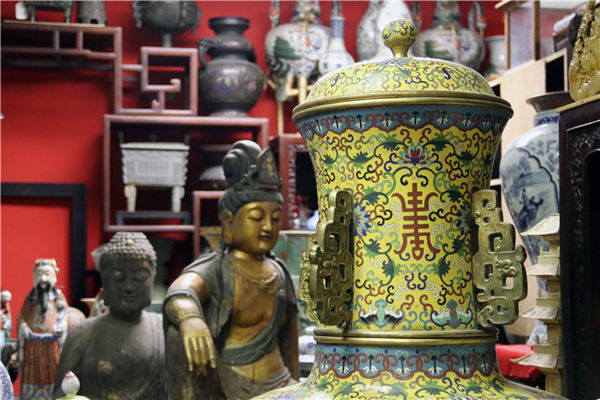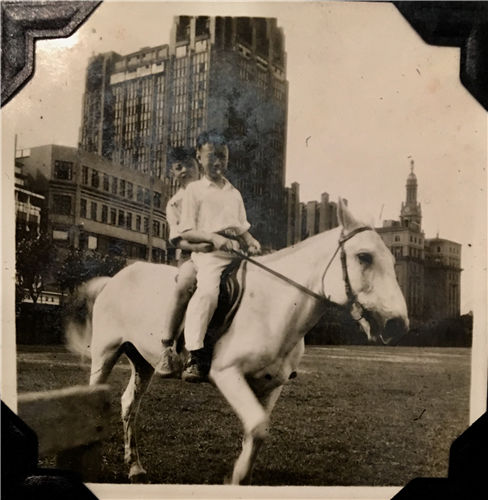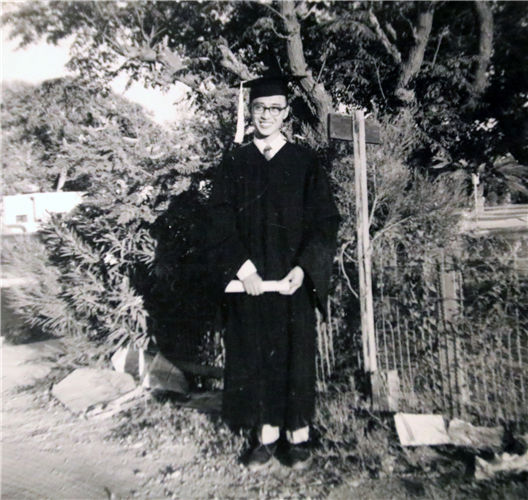The antiques man on East 55th
By Zhao Xu in New York | China Daily | Updated: 2019-05-25 09:00

In 1952 the teenager boarded a train for Hong Kong, a cultural melting pot known as the Pearl of the Orient. There he attended, among other schools, La Salle College and became a schoolmate for the late Bruce Lee, Kung-fu master and action movie star.
Chen stayed in Hong Kong for six years before leaving for the US.
"I had become interested in physics and thought the US a better place for academic pursuits. An elder sister of mine was already in Arizona, married to an American Indian soldier she previously met in Shanghai. So I went there."
Attending the University of Arizona, Chen studied plasma physics, before arriving in New York in 1963, doing research in the astronomy department of Columbia University.
"It was during this time that I worked part-time for Ton Ying," Chen says, citing the influence of his uncle, Liu Linsheng, who is married to a cousin of Chen's father. A writer-scholar, Liu was an art adviser for the Chinese Nationalist Government after World War II as the country tried to retrieve from Japan some of its most-treasured art works looted during the war.
"We had some star clients. Mr Rockefeller was one, who was not at all that picky when it came to choosing for a museum donation. Then there were Gloria Vanderbilt, the heiress and actress, and the actors Anthony Quinn and Richard Chamberlain."

There was also Benjamin Altman, the man who founded the namesake luxury department store, and Arthur M. Sackler, the psychiatrist and philanthropist whose collection of Chinese art works and antiques today fill, among others, the Metropolitan Museum of Art (the Met) in New York and the Arthur M. Sackler Museum of Art and Archaeology at Peking University in Beijing.
The recent media coverage of the opioid epidemic has embroiled and disgraced the Sackler family, whose members were behind the hugely effective marketing of OxyCotin, an opioid drug believed to have claimed hundreds of thousands of lives from overdose over the past 20 years.
"I myself had almost gone into marketing," says Chen who, after university, held three college teaching posts and worked for several companies. "That's when I got letters from father asking me to try to explore the US market for a brand of concentrated mouth wash and aftershave he had just launched."

The idea was dropped after Chen found out that clinical tests, thus a lot of money, were required for the products to be sold in the US. Today two sample bottles of half-evaporated yellow liquids lie in a corner of Chen's store, "a reminder of my past effort", as he puts it.
By that time Zhang had long since died. After the death of his successor and brother-in-law Yao Changfu (more famously known as C.F. Yao) in 1963, the company struggled. When Chen, bored with "having a boss in my life", decided to strike out on his own, it was more than a decade since Ton Ying had held its last auction at Parke-Bernet Galleries in New York, in 1964.
"In 1975 the Manhattan Art & Antique Center was still under construction. I dropped by thinking: 'Well, I may start from here.' Forty-four years later I'm still here," he says.
A longtime presence carries its own benefits. Ask to see Chinese antiques, and almost every shop owner within the building will direct you to Chen's treasure trove, which is impossible to miss.
























